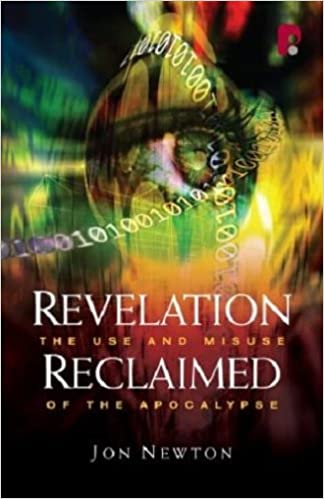No Bible book has suffered more at the hands of its would-be interpreters than the Apocalypse. Sadly, this has caused many Christians to neglect it badly, apart from chapters 1-5 and 21-22. But who would read only the introduction and conclusion of any other important book, in Scripture or out of it?
There are four main schools of interpretation: the preterist (Revelation is largely about John’s own day), the futurist (it is mostly about events still future), the historicist (it is about the church’s history between the two advents) and the idealist (it is about the principles of God’s sovereign activity in the world).
Jon Newton’s stimulating and readable book challenges many widely-held views. His early chapters outline an incredibly diverse collection of wild and woolly interpretations of the Apocalypse. Reading these may teach us preachers some humility, especially if we find here any views with which we have flirted!
Clearly he has serious reservations about the historicist and futurist approaches and most of the wilder interpretations he mentions come from these two schools. He tends to focus on their weaknesses, and their devotees may suggest there are some strengths too that should not be overlooked.
In several constructive chapters he shows Revelation’s great value, suggests some principles of interpretation and indicates its relevance today as ‘it speaks to all eras of Christian history, because the spiritual forces and issues Christians face tend to be the same in all centuries’.
This shows he inclines towards the idealist interpretation, although he combines it with some elements of preterism. He gives special attention to Revelation 9 and 17, using them helpfully (especially for preachers) as case-studies to teach principles of interpretation. He ends with a useful study of the main interpretations of the millennial passage in Revelation 20.
He takes the Apocalypse seriously, including its teaching on judgement and eternal punishment, and clearly believes passionately in its importance, so do not be put off by one unhappily-worded sentence about its world view on pages 63-64.
Whatever your own view, or if you would struggle to state a view at all, this book should provoke you to serious personal study of Revelation; and that has got to be good.




